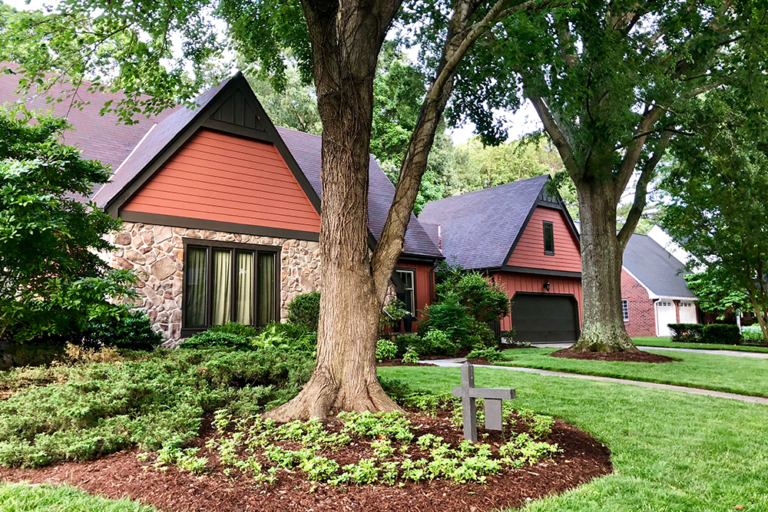Buying a home is one of the biggest financial decisions you’ll make in your lifetime. You not only want to find the perfect home within your price range, but it’s also important to find a loan that best meets your needs.
If you’re a first-time homebuyer, you may be interested in an FHA mortgage loan. These loans are attractive because they don’t require a 20% down payment like a conventional loan. Instead, buyers may be able to bring just 3.5% to the table.
But the low down payment comes at the cost of mortgage insurance. In fact, mortgage insurance is compulsory for all FHA loans. The amount of mortgage interest that you’ll pay on a loan is known as mortgage insurance premium (MIP).
How much can you expect to pay? What are the benefits and drawbacks of MIP? Here’s everything you need to know.
What are Mortgage Insurance Premiums (MIPs)?
MIP is required on all FHA loans. At closing, borrowers are required to pay MIP upfront, also known as UFMIP. After paying this amount, the annual premium is then evenly divided across monthly mortgage payments.
Typically, upfront MIP is 1.75% of the loan amount. Annual premium amounts range between 0.45% – 1.05% of the loan amount.
The percentage depends on how much you put down, how much you borrow, and loan terms. There is one exception to this rule. Anyone undergoing an FHA Streamline refinance on a loan that was endorsed on or before June 1, 2009, is not subject to these percentages.
Be aware that private mortgage insurance (PMI) is different from mortgage insurance premiums. PMI is for conventional loans. For this loan type, PMI is required if the borrower makes less than a 20% down payment.
FHA loans are different because you’ll pay mortgage insurance whether you put down a 3.5% or a 20% down payment.
So why do FHA loans require mortgage insurance? The purpose of mortgage insurance is to offset the lender’s risk. Making a low down payment means that the lender faces a bigger loss if you default on the loan.
Both MIP and PMI insure the lender from this potential risk. Even though you’re paying for the insurance, it isn’t designed to protect you.
Additional read: Everything You Need to Know About Mortgage Insurance
MIP vs. PMI vs. MPI
Many people confuse MIP and PMI with mortgage protection insurance (MPI). With such similar acronyms, it’s no wonder that homebuyers get confused! However, MPI is the only insurance that benefits homeowners.
MPI is a type of life insurance that pays off your mortgage loan in the event of the borrower’s untimely death. These policies ease the burden of mortgage payments so that your family has one less expense to worry about.
MIP and PMI protect the lender. MPI protects you and your family.
How to Calculate Your Mortgage Insurance Premium
With a single exception, all FHA mortgage borrowers will pay 1.75% of the total loan amount. While this cost is due at closing, it can be financed if necessary. This means that the cost is added to your loan amount, and you don’t have to bring the amount at closing.
The one exception to upfront mortgage insurance premiums is borrowers who are conducting a Streamline refinance on an FHA that was endorsed on or before June 1, 2009.
These borrowers only pay upfront mortgage insurance premiums at a rate of 0.01% of the loan amount. The annual MIP amount is set at 0.55% of the loan.
Wondering if this exception applies to you? Be aware that the endorsement date for the loan isn’t the same as your closing date. The endorsement date occurs shortly after closing.
If you’re unsure what your loan’s endorsement date is, contact the FHA.
For borrowers who don’t qualify for this exception, the amount you’ll pay towards annual mortgage insurance depends on several factors.
Your annual premium is divided equally across each of your monthly mortgage payments. Consider this scenario. You’ve found your dream home and you’re getting a 30-year FHA for $250,000 with a 3.5% down payment.
In this scenario, your annual MIP rate would be 0.85% of the loan amount, which is $2,125 annually. Each month, around $177 of your mortgage payment goes towards the premium.
Additional read: How Mortgage Calculators Work
Pros and Cons
As with most things, there are some pros and cons to having a loan with PMI.
Pros
Own a home with a lower down payment. With a conventional mortgage, making a bigger down payment allows you to avoid paying PMI altogether. However, with an FHA loan, you can buy the house you love with a more affordable down payment.
Keep more money in the bank. Many homeowners make a large down payment at the cost of draining their savings account. More often than not, this isn’t a wise financial decision. When buying a home, it’s crucial to have cash reserves. Paying PMI means that buying a home will make much less of a dent in your finances.
You don’t have to pay PMI forever. Depending on when you first took out the loan and your down payment, MIP can last anywhere from 11 years to the life of the loan. While MIP doesn’t fall off automatically, it can be removed. The best way to do this is to wait until you have enough equity to refinance into a conventional loan.
Cons
PMI rates vary. There’s no set PMI rate for all FHA borrowers, with the exception of Streamline refinance loans. This means that you may pay more in mortgage insurance premiums based on your loan and other factors.
PMI is an extra premium. PMI is extra money that you have to pay on top of your normal mortgage payment. This is money that you don’t get back, as it’s meant to insure the lender and not you or your home.
PMI only protects the lender. Even though you pay the insurance premiums, MIP only benefits the lender. Paying to minimize someone else’s risk is definitely one of the biggest pitfalls of MIP.
Is Mortgage Insurance Right for You?
Buying a home isn’t a decision to make lightly – neither is choosing a lender. If you’re in the market to buy a home in the near future, it helps to have a reputable lender that you can trust in your corner.
Interested in an FHA loan? Want to learn more about mortgage insurance premiums for your specific mortgage? A and N Mortgage is here to help. Contact our team today to discuss your home buying needs so that we can find the right mortgage loan for you!
A and N Mortgage Services Inc, a mortgage banker in Chicago, IL provides you with high-quality home loan programs, including FHA home loans, tailored to fit your unique situation with some of the most competitive rates in the nation. Whether you are a first-time homebuyer, relocating to a new job, or buying an investment property, our expert team will help you use your new mortgage as a smart financial tool.





